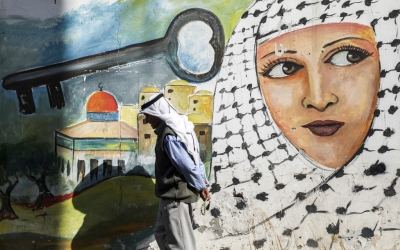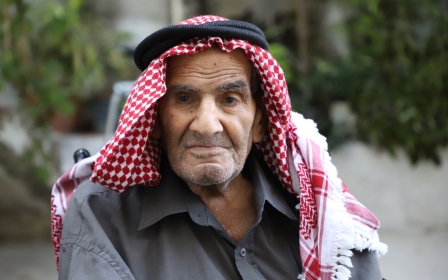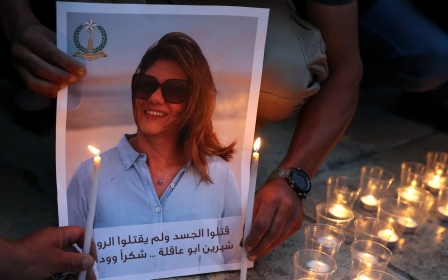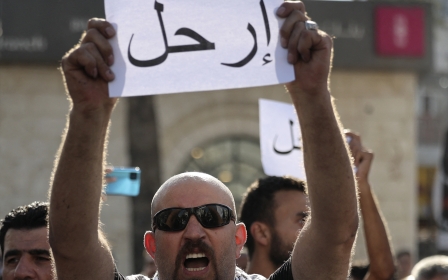Israel's assault on Gaza is an extension of its bloody war on Jenin
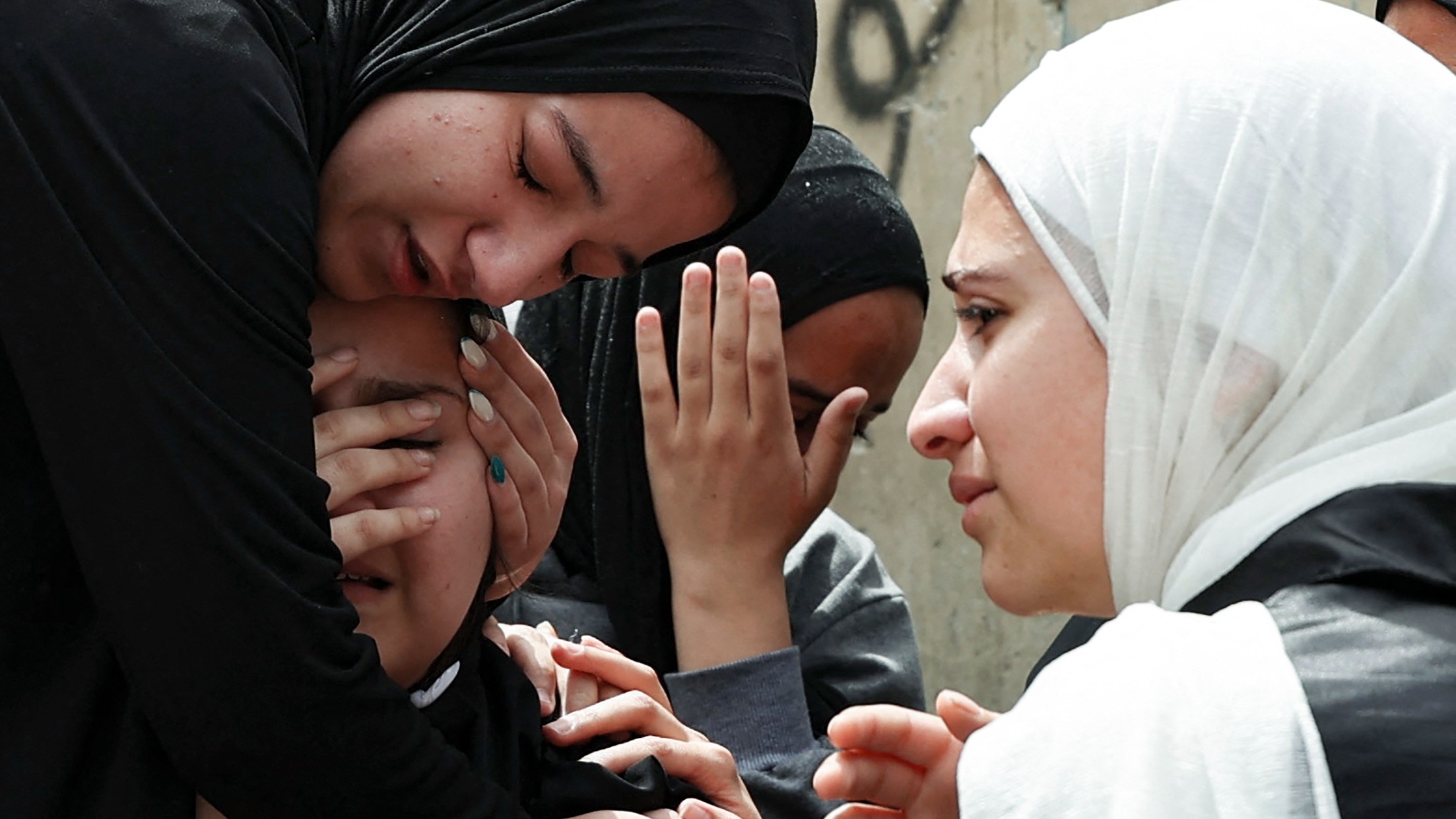
The Israeli war against Palestinian resistance movements - including the Islamic Jihad in Gaza - did not start a few days ago. It has been going on for months in Jenin.
Israel seems to have shifted its strategy from large-scale military operations to targeted killings of political activists
We have a war in Jenin, a local cafe owner told me three weeks ago during my visit to the northern West Bank city. When I asked for more explanation, he said: “Israel is launching a war of bombings and assassinations in the city. The people are fighting back, while the Palestinian Authority (PA) is sitting and watching".
Jenin is now known to be essentially outside the security control of the PA, while Israel seems to have shifted its strategy from large-scale military operations to targeted killings of political activists. The cafe owner’s statement left me thinking: why Jenin?
From Jenin to Gaza
Last week, Israel arrested Bassam al-Saadi, a senior Islamic Jihad leader in a raid that killed Palestinian youth. Furthermore, last April, an Israeli raid in Jenin left one Palestinian dead and 13 others wounded. Later that month, another operation killed one Palestinian teenager and injured three others. And on 11 May, Al Jazeera journalist Shireen Abu Akleh was killed while covering events at the camp, sparking worldwide condemnation.
New MEE newsletter: Jerusalem Dispatch
Sign up to get the latest insights and analysis on Israel-Palestine, alongside Turkey Unpacked and other MEE newsletters
But the attacks didn’t stop there: In June, around 30 Israeli military vehicles raided Jenin, with soldiers encircling a car in the city’s east and opening fire on the four men inside. Three died and the fourth was seriously wounded.
The attack triggered concern that there would be a large-scale Israeli invasion of Jenin refugee camp, where armed wings of Islamic Jihad and Fatah movements are active. However, it seems that Israel instead decided to attack Gaza where Islamic Jihad maintains a much stronger presence.
Youth in Jenin are under constant pressure, grappling with the daily hardships of life under occupation.
Israel’s military operations in the city allow it to undermine the PA’s security control and credibility in the eyes of its own people, as the Palestinian leadership fails to protect vulnerable citizens. Rather than an official response, Palestinians from Jenin are individually carrying out attacks against Israelis.
Chaos on the streets
Through its assaults on Jenin, Israel hopes to achieve two goals: to deprive the PA of any claim to control security in the region and to encourage other actors - like the tribes - to step up and fill the security void.
For example, in Hebron, the tribes play a key role in maintaining security and resolving conflicts. Unlike the PA, the tribes deliver security and stability to their own members without demanding national and political rights. This is ideal for Isreal and it hopes something similar would be created in Jenin.
Israel wants to relegate the Palestinian leadership to a civil administration that simply follows Israel’s orders with no power to demand national or political rights.
The PA, on the other hand, is quietly observing the situation in Jenin, aiming to show Israel what the city - and perhaps other parts of the occupied territories - could look like in the absence of the PA’s security apparatus.
The PA is hoping that Israel will fail in Jenin so their security control becomes more imperative. The PA built its credibility with the US on the basis of being the only party that could deliver security in the occupied West Bank, and the war in Jenin presents an opportunity to prove that without its presence, chaos reigns.
In this ongoing battle between Israel and the PA, Jenin’s citizens are missing from the calculus. Amid aggressive Israeli operations and the PA’s failure to step in and offer protection, some are turning to violence as the only recourse to address the security void.
The people of Jenin, and especially the city’s youth, are rising up against the marginalisation they have suffered historically due to the failed development policies of the PA and donor countries. Amid a lack of job opportunities in the city, some frustrated and disheartened youth have taken up arms, viewing this as one way to reclaim dignity in the face of enormous odds.
Identity of resistance
The Jenin revolution is not merely a response to Israeli operations and attacks. It is also about identity. Resistance against foreign armies has been historically engraved into the minds, hearts, and narratives of the city’s people.
The main battleground of the 1936 uprising against the British Mandate was Jenin, where British troops killed resistance leader Izz ad-Din al-Qassam. Another prominent revolutionary leader, Sheikh Farhan al-Saadi, was also killed by the British army in Jenin.
“We are the grandchildren of al-Qassam,” one person in the cafe said during my visit. “This is who we are; we can’t remain silent.”
More recently, the Jenin refugee camp led the toughest confrontation with Israel during the Second Intifada.
In April 2002, Israeli forces stormed the camp, killing more than 50 Palestinians. Around two dozen Israeli soldiers were also killed in the operation.
Many of Jenin’s youth who are fighting the war today were babies, or were not yet born, during the Second Intifada. But the city’s history of resistance is engraved into their identity, serving as motivation for their revolutionary actions against the Israeli occupation.
Located on the periphery of the occupied West Bank, Jenin is geographically very close to Israel, which has facilitated Palestinian operations inside the country. And as Israeli settlements continue to grow across the West Bank, separating the two regions is proving to be impossible.
This raises serious concerns about the myth of the two-state solution, paving the way for what analysts have dubbed the “one-state reality”. History, identity, dignity, marginalisation, the demise of the two-state solution - all of these factors seem to answer my initial question: why Jenin?
If you walk in Jenin, you will see the pride and dignity in people’s eyes. Despite the tough circumstances and the continuous Israeli raids, people are enjoying what it means to be free of fear.
"We are not afraid, Israel is afraid of us," said one local person. The war did not break the people of Jenin, it only made them stronger.
The views expressed in this article belong to the author and do not necessarily reflect the editorial policy of Middle East Eye.
This article is available in French on Middle East Eye French edition.
Middle East Eye delivers independent and unrivalled coverage and analysis of the Middle East, North Africa and beyond. To learn more about republishing this content and the associated fees, please fill out this form. More about MEE can be found here.


